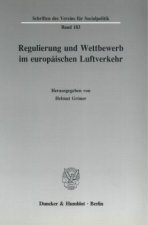
Kód: 01915860
Afanasii Shchapov and the Significance of Religious Dissent in Imperial Russia, 1848-70
Autor Thomas Marsden
In the 1650s and 1660s, the head of the Russian Orthodox Church, Patriarch Nikon, carried out a series of reforms which were rejected by a large number of the faithful. The split that resulted, the Great Schism or raskol, led a la ... celý popis
- Jazyk:
 Angličtina
Angličtina - Vazba: Brožovaná
- Počet stran: 104
Nakladatelství: ibidem-Verlag, Jessica Haunschild u Christian Schon, 2020
- Více informací o knize

1105 Kč

Skladem u dodavatele v malém množství
Odesíláme za 12-17 dnů
Potřebujete více kusů?Máte-li zájem o více kusů, prověřte, prosím, nejprve dostupnost titulu na naši zákaznické podpoře.
Přidat mezi přání
Mohlo by se vám také líbit
-

Oresama Teacher, Vol. 13
306 Kč -

Weymouth New Testament in Modern Speech, John
516 Kč -

Bacteria
2183 Kč -

Manual of the Geology of India
2399 Kč -

Regulierung und Wettbewerb im europäischen Luftverkehr.
810 Kč -

Adoption von Innovationen - Die Einfuhrung der RFID - Technologie
1837 Kč -

Biologischer Pflanzenschutz im Gewächshaus
1406 Kč
Darujte tuto knihu ještě dnes
- Objednejte knihu a zvolte Zaslat jako dárek.
- Obratem obdržíte darovací poukaz na knihu, který můžete ihned předat obdarovanému.
- Knihu zašleme na adresu obdarovaného, o nic se nestaráte.
Více informací o knize Afanasii Shchapov and the Significance of Religious Dissent in Imperial Russia, 1848-70
Nákupem získáte 111 bodů
 Anotace knihy
Anotace knihy
In the 1650s and 1660s, the head of the Russian Orthodox Church, Patriarch Nikon, carried out a series of reforms which were rejected by a large number of the faithful. The split that resulted, the Great Schism or raskol, led a large proportion of the Russian population to become completely isolated from the official church. Known as raskolniki, they were seen as stubborn opponents of both church and government and were fiercely persecuted. Two centuries later amidst peasant protests, revolutionary conspiracies and government paranoia, Russias religious dissenters were again at the forefront of national concerns. Russias autocratic rulers, while equating Orthodoxy with political loyalty, saw the heterodox as a threat to internal security. At the same time, Russian revolutionaries began to look to the people as an instrument of political change. Where all too often loyalty to the Tsar was the defining feature of the peasants, the raskolniki with their persecuted history and stubborn resistance seemed to promise a well of opposition from which the radicals could draw. The historian and radical thinker Afanasii Shchapov (1830-1876) championed religious dissent as a politically democratic movement. More than anyone else he defined the relationship between political and religious dissent that was to persist until the revolution of 1917. In examining Shchapovs works together with a wide range of printed and archival sources, Thomas Marsden reveals that the raskolniki were central to the most important questions of mid-nineteenth century Russian society - those of revolution, nationality, and progress.
 Parametry knihy
Parametry knihy
1105 Kč
- Plný název: Afanasii Shchapov and the Significance of Religious Dissent in Imperial Russia, 1848-70
- Autor: Thomas Marsden
- Jazyk:
 Angličtina
Angličtina - Vazba: Brožovaná
- Počet stran: 104
- EAN: 9783898218627
- ISBN: 3898218627
- ID: 01915860
- Nakladatelství: ibidem-Verlag, Jessica Haunschild u Christian Schon
- Hmotnost: 1000 g
- Rozměry: 210 × 148 × 15 mm
- Datum vydání: 19. November 2020
Oblíbené z jiného soudku
-

Berserk Deluxe Volume 1
1033 Kč -

Haunting Adeline
617 Kč -

Berserk Deluxe Volume 2
1056 Kč -

Berserk Deluxe Volume 3
1138 Kč -

LEGO Star Wars Visual Dictionary Updated Edition
534 Kč -

Atomic Habits
483 Kč -

White Nights
90 Kč -

Powerless
276 Kč -

Harry Potter and the Prisoner of Azkaban (Minalima Edition)
978 Kč -

Berserk Deluxe Volume 5
1115 Kč -

Chainsaw Man, Vol. 15
251 Kč -

Hunting Adeline
633 Kč -

House of Leaves
405 Kč -

Iron Flame
462 Kč -

Cry Baby Coloring Book
257 Kč -

JUJUTSU KAISEN V22
241 Kč -

The Official Stardew Valley Cookbook
607 Kč -

Gravity Falls Journal 3
427 Kč -

The 48 Laws of Power
523 Kč -

Dune Messiah
178 Kč -

Heaven Official's Blessing: Tian Guan Ci Fu (Novel) Vol. 2
442 Kč -

Dune
254 Kč -

Surrounded by Idiots
256 Kč -

Twisted Love
215 Kč -

Berserk Deluxe Volume 4
1165 Kč -

Twisted Lies
276 Kč -

Berserk Deluxe Volume 6
1086 Kč -

A Little Life
258 Kč -

Heaven Official's Blessing: Tian Guan Ci Fu (Novel) Vol. 1
357 Kč -

Bungo Stray Dogs, Vol. 8 (light novel)
389 Kč -

Twisted Games
214 Kč -

Fourth Wing
214 Kč -

King of Sloth
276 Kč -

CHAINSAW MAN V14
248 Kč -

48 Laws Of Power
471 Kč -

Berserk Deluxe Volume 10
1163 Kč -

The Husky and His White Cat Shizun: Erha He Ta de Bai Mao Shizun (Novel) Vol. 5
373 Kč -

Court of Thorns and Roses Paperback Box Set (5 books)
1113 Kč -

Court of Mist and Fury
254 Kč -

Court of Thorns and Roses
218 Kč -

Raising Mentally Strong Kids: How to Combine the Power of Neuroscience with Love and Logic to Grow Confident, Kind, Responsible, and Resilient Child
607 Kč -

No Longer Human
330 Kč -

Vagabond (VIZBIG Edition), Vol. 1
641 Kč -

Heaven Official's Blessing: Tian Guan Ci Fu Vol. 4
441 Kč -

Twisted Series 4-Book Boxed Set
1064 Kč -

Powerful
265 Kč -

Dead Poets Society
176 Kč -

A Court of Silver Flames
276 Kč -

Throne of Glass Box Set (Paperback)
2146 Kč
Osobní odběr Praha, Brno a 12903 dalších
Copyright ©2008-24 nejlevnejsi-knihy.cz Všechna práva vyhrazenaSoukromíCookies


 Vrácení do měsíce
Vrácení do měsíce 571 999 099 (8-15.30h)
571 999 099 (8-15.30h)